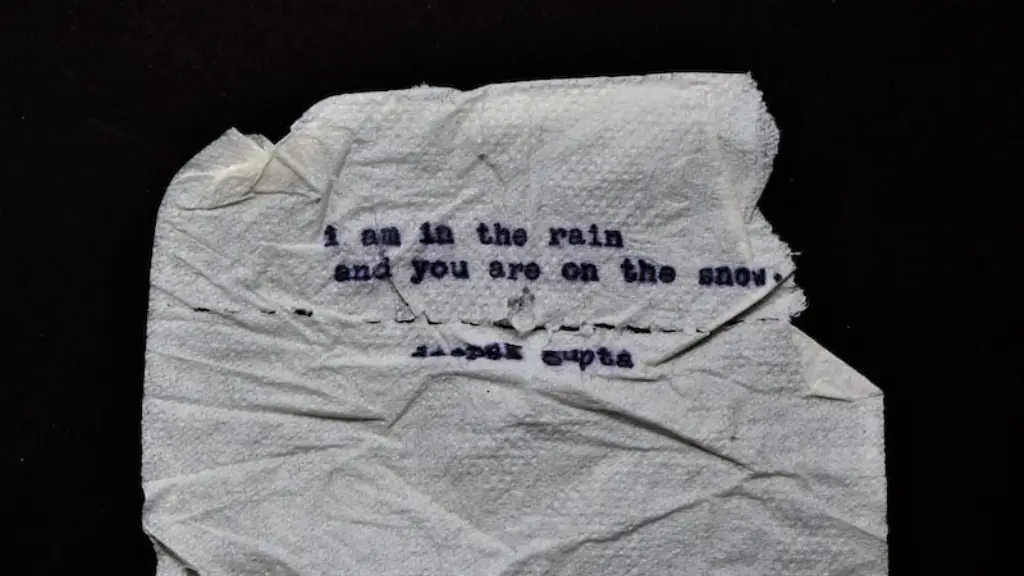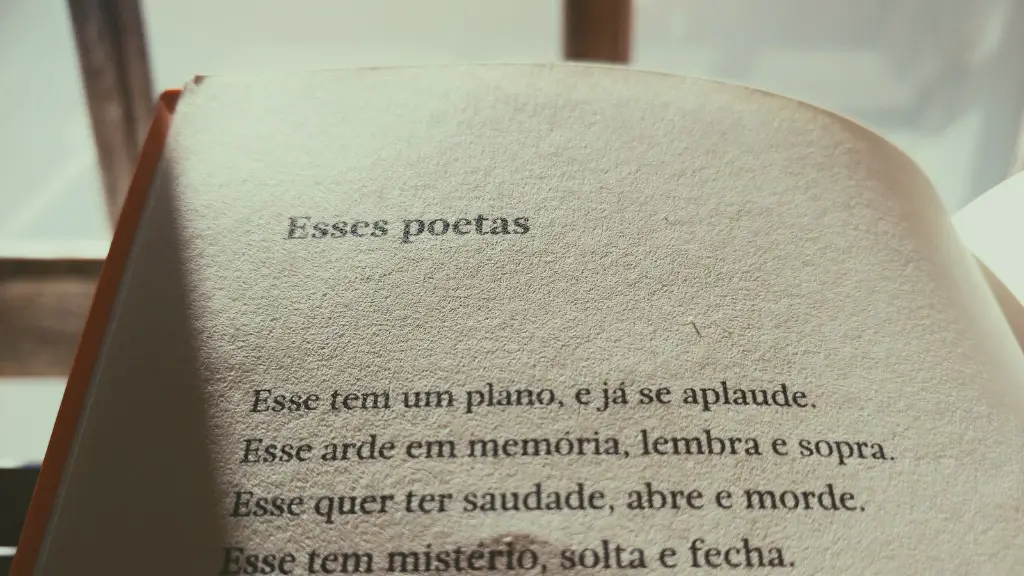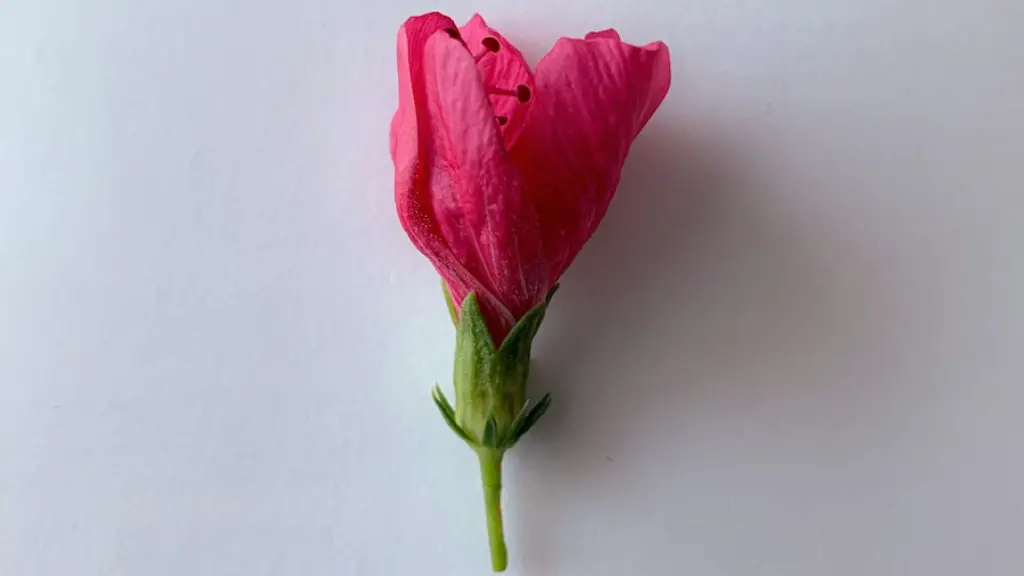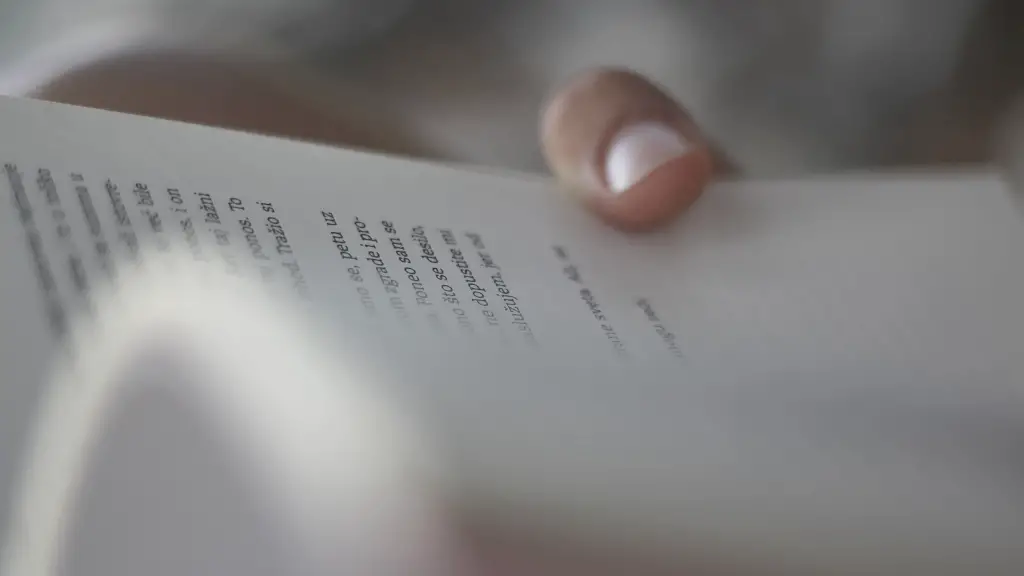What is Free Verse?
Free verse is an artful expression of poetry without rules or structure in order to create an intense lyrical effect. The primary criteria for free verse is that it lacks any form of pre-established metrical or rhythmic patterns. Unlike other types of poetry, such as sonnets, limericks or haikus, poems written in free verse do not have a specific meter or rhyme scheme.
The words in a free verse poem are organized in terms of sound, meter, rhythm and pattern, instead of a specific set of rules. No prescribed lengths are required for each line and the general feeling of the poem will rely heavily upon the author’s choice of words, images and metaphors.
Poets who favor free verse often use everyday language rather than concentrating on traditional poetic techniques such as rhyme and even meter. The result is a poem that reads much more like ordinary spoken language, allowing the readers to appreciate its artistry on a much more personal level.
How is Free Verse Different From Other Forms of Poetry?
There are some key differences between free verse and other forms of poetry. Firstly, free verse does not follow a strict pattern for meter and rhyme. Instead, poets have the freedom to explore different uses of language such as assonance, meter, alliteration and cadence to create unique and poetic images. Some poets may also use enjambment and line breaks as a way of creating imagery, drama and rhythm in the poem.
Unlike other forms of poetry, there is typically no set structure or pattern to a free verse poem. While other types of poetry such as sonnets or haikus may have specific guidelines regarding syllable and line counts, free verse allows the poet to be creative and unconstrained when choosing words.
Another difference between free verse and other types of poetry is that free verse typically favors contemporary language, rather than archaic words. The main goal of free verse is to convey a message, feeling or thought in a straightforward and direct manner. Instead of focusing on ornate imagery, free verse poets prefer to use everyday language in order to more easily connect with the readers.
Benefits and Drawbacks of Free Verse
Like other forms of writing, free verse can be a great tool for expressing creativity, emotion and passion. The rhythm-less structure of free verse often provides a much more open-ended approach to writing poetry, as poets have the freedom to express themselves without the confines of rhyme or meter.
In addition, free verse poems allow readers to appreciate the poet’s choice of language and the use of metaphors, rather than the structure of the poem itself. This makes free verse poems much more accessible to readers who may not be familiar with previously established poetic forms.
However, some critics have argued that the lack of constraints can be detrimental to the quality of free verse work. Without the structure imposed by traditional poetic forms, some authors may struggle to express their thoughts and ideas as concisely as they could in another form.
Moreover, free verse often relies more on personal interpretation by the reader, as opposed to being more linear and direct when compared to other types of poetry.
Concluding Thoughts
The beauty of free verse lies in its ability to provide poets with the freedom to express themselves in a way that traditional poetic forms cannot. The rhythm-less structure makes it easier for the poet to use different forms of imagery and symbolism, allowing them to create a more authentic and personalized poem.
At the same time, free verse also gives readers the opportunity to interpret the poem in a multitude of ways. The lack of structure and the emphasis on everyday language can help to make free verse more accessible to readers who may not be familiar with poetry.
Free Verse and Social Issues
Free verse offers poets a great platform to communicate their opinion on current social issues. Great poets often use free verse as a tool to express their views on topics such as war, poverty or injustice.
Due to its versatile and adaptable nature, free verse can be used to express a wide range of thoughts and feelings. The poet can be as creative as they like, using metaphors and imagery to portray their views. By expressing their opinion in such a direct and poignant manner, poets can help to create awareness of important issues and may even be able to motivate people to act.
Moreover, free verse has also been used for centuries as a form of protest poetry against oppressive regimes. It has been used as a way to speak truth to power, as poets were (and still are) able to communicate their opinions directly to their peers and their oppressors.
Free Verse in Popular Culture
Free verse has also been instrumental in popular culture, particularly when it comes to music. A lot of popular music, such as hip-hop, rap and spoken word, revolves around the use of free verse. The rhythm-less structure of free verse allows musicians to create expressive and creative lyrics which often relate to important issues.
In addition, free verse has been used as the basis for a lot of famous films, books and television shows. Due to its versatile nature, free verse can be adapted in a multitude of ways, from comedies to tragedies and from documentaries to dramas.
Overall, free verse has been an essential part of literature, popular culture and society for centuries. Its ability to express thoughts and feelings in an unrestricted manner has made it a valuable tool for poets, musicians, authors and filmmakers alike.
The Future of Free Verse
Despite its long history, free verse does not appear to be going anywhere anytime soon. As long as there are poets, musicians and authors seeking for ways to express their views and creativity, free verse will continue to provide them with an accessible and versatile platform.
Moreover, with the increasing prevalence of social media, free verse may be well placed to become even more popular in the coming years. As poets look for new and innovative ways to engage with their readers, we can be sure to expect more powerful and thought-provoking free verse in the near future.
Using Free Verse for Self-Expression
For anyone seeking to use free verse to express themselves, there are a range of tools and techniques that can be employed in order to create an effective and meaningful poem. Firstly, it is important to create a strong image or idea in order to focus the poem around a central concept.
Another technique is to create mystery and symbolism through the use of metaphor and imagery. These can be used to convey feelings and emotions that are often impossible to express in prose. However, it is also important to ensure that the images and symbols used remain clear and understandable to the reader.
Lastly, it is important to remember that the aim of free verse is to convey ideas and emotion without the restriction of established forms. As such, it is important to trust in one’s own creativity and to take risks when creating a free verse poem.





